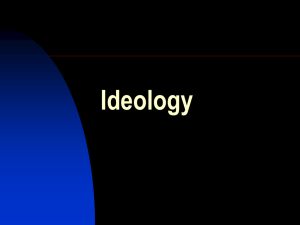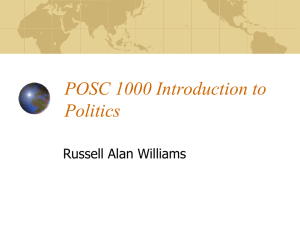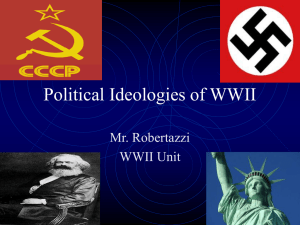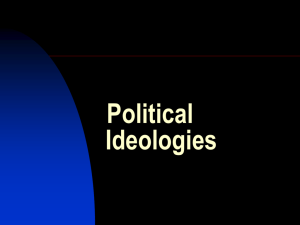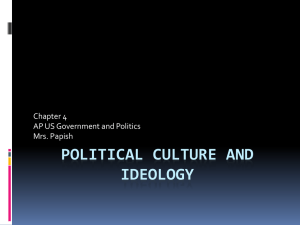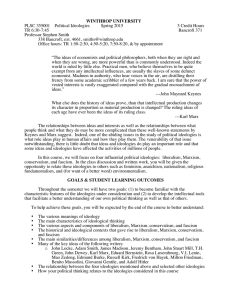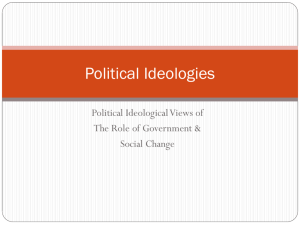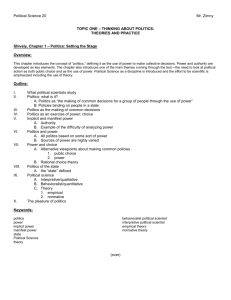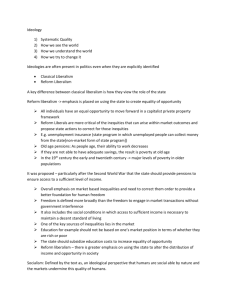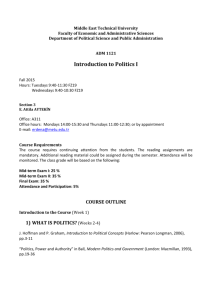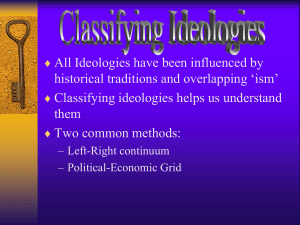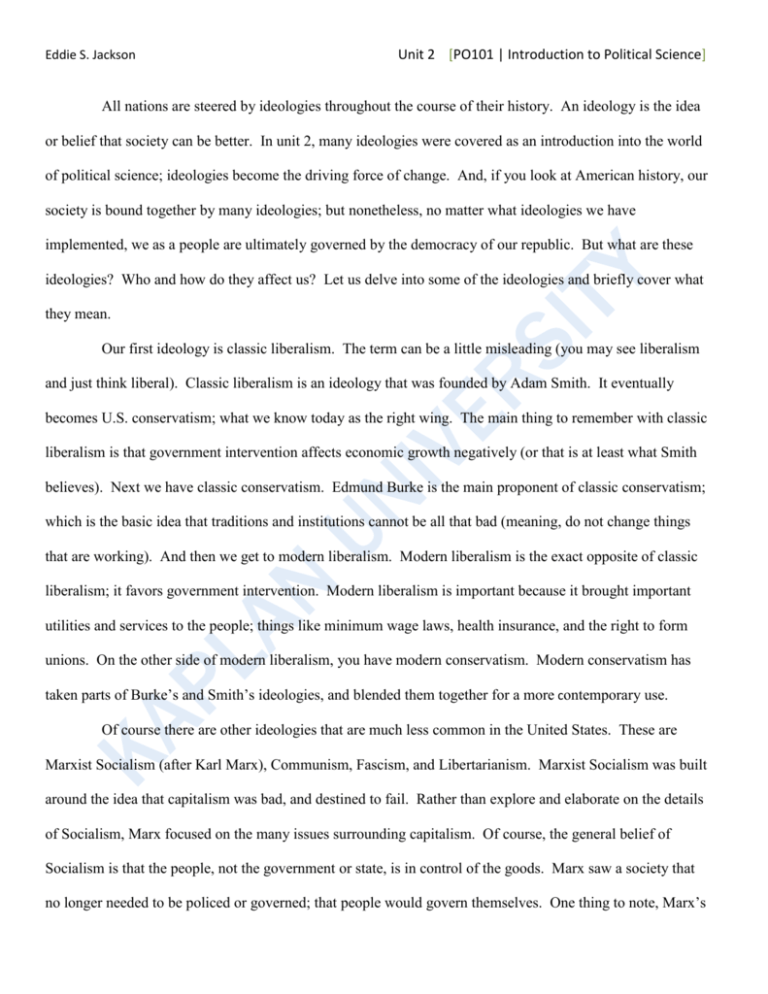
Eddie S. Jackson
Unit 2 [PO101 | Introduction to Political Science]
All nations are steered by ideologies throughout the course of their history. An ideology is the idea
or belief that society can be better. In unit 2, many ideologies were covered as an introduction into the world
of political science; ideologies become the driving force of change. And, if you look at American history, our
society is bound together by many ideologies; but nonetheless, no matter what ideologies we have
implemented, we as a people are ultimately governed by the democracy of our republic. But what are these
ideologies? Who and how do they affect us? Let us delve into some of the ideologies and briefly cover what
they mean.
Our first ideology is classic liberalism. The term can be a little misleading (you may see liberalism
and just think liberal). Classic liberalism is an ideology that was founded by Adam Smith. It eventually
becomes U.S. conservatism; what we know today as the right wing. The main thing to remember with classic
liberalism is that government intervention affects economic growth negatively (or that is at least what Smith
believes). Next we have classic conservatism. Edmund Burke is the main proponent of classic conservatism;
which is the basic idea that traditions and institutions cannot be all that bad (meaning, do not change things
that are working). And then we get to modern liberalism. Modern liberalism is the exact opposite of classic
liberalism; it favors government intervention. Modern liberalism is important because it brought important
utilities and services to the people; things like minimum wage laws, health insurance, and the right to form
unions. On the other side of modern liberalism, you have modern conservatism. Modern conservatism has
taken parts of Burke’s and Smith’s ideologies, and blended them together for a more contemporary use.
Of course there are other ideologies that are much less common in the United States. These are
Marxist Socialism (after Karl Marx), Communism, Fascism, and Libertarianism. Marxist Socialism was built
around the idea that capitalism was bad, and destined to fail. Rather than explore and elaborate on the details
of Socialism, Marx focused on the many issues surrounding capitalism. Of course, the general belief of
Socialism is that the people, not the government or state, is in control of the goods. Marx saw a society that
no longer needed to be policed or governed; that people would govern themselves. One thing to note, Marx’s
Eddie S. Jackson
Unit 2 [PO101 | Introduction to Political Science]
vision has been labeled a utopian-type society that most likely will never exist. And, there is Communism.
Communism is the combination of Marxist theory and Leninist organization to form a type of totalitarian
party. Communism is really just the graduated, or fully mature, version of Socialism. The ideology of
Communism creates a world that is classless, moneyless, where all the people are equal. This is a wonderful
idea in theory; however, every time it has been put into practice, major corruption and greed have always
surfaced. Communism fails due to greedy humans. A concept that is authoritarian in nature is Fascism.
Fascism is a form of nationalism that turns catastrophic if we look at history; specifically Germany in the
twentieth century. Fascism is what we would consider extreme right-wingers or those that resist and do not
want change; many times having a hidden agenda where everything seems mysterious. We have all heard the
term greedy capitalist; a greedy capitalist is well underway to becoming a fascist. But, whereas Fascism may
be the darker version of Nationalism, Nationalism in itself is quite common. What is just Nationalism? It is
basically just an exaggerated belief in ones country’s solidarity, or greatness. You can say the United States
has a high Nationalism ideology. I know while I have been in school for the last three years, not a day goes
by that I do not hear that the United States is the greatest country on the planet. I would say that is
high Nationalism.
And finally, there a few other ideologies that are important to point out (oddly enough, all springing
out of the 1960s); they are Libertarianism, Feminism, and Environmentalism. Libertarianism is the ideology
that government should be extremely small; perhaps almost non-existent. This is important to note, because
just in this past election, election 2012, government spending was a hot topic. And there are many Americans
that believe that we have too big, and too much, government. Moving on to Feminism. Feminism was
reintroduced to the United States in the 1960s. At Feminism’s core, it just states that women are equal to
men; in all areas of life, whether that be in the office, out of the office, in education, or in politics. Equal.
And we end with Environmentalism; yet another 1960s movement. The Environmentalism ideology just
states that we must regulate business, company, and human negative impact on the planet; we must protect
our most precious resource.
Eddie S. Jackson
Unit 2 [PO101 | Introduction to Political Science]
Reference
Cord, R. L., Medeiros, J. A., Roskin, M. G., & Jones, W. S. (2010). Political Science: An Introduction (11th
ed.). Upper Saddle River, NJ: Pearson/Longman.


